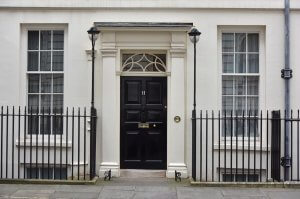- UK trusts, tax and estate planning
- Luxury assets
- Luxury brands

Shorter Reads
Can I create a trust fund for alternative investment profits?
Aidan Grant, Associate in Private wealth, answers a reader’s question in the Financial Times.
1 minute read
Published 24 September 2019
Key information
- Specialisms
- Private Wealth
- Services
- UK trusts, tax and estate planning
- Luxury assets
- Sectors
- Luxury brands
I invest in alternative investments, including watches and jewellery, and am becoming quite successful. I would like to channel the profits into a trust for my two young children. Is this the best way to safeguard the money for them?
Aidan Grant, Associate, says trusts are a good way of protecting assets for future generations. There are various types of trust, which carry a range of asset protection and tax considerations. Most relevant in your case are discretionary trusts and bare trusts.
A discretionary trust keeps assets completely out of the hands of the beneficiaries until the trustees — of which you could be one — exercise their discretion to distribute funds. Control is entirely with the trustees, which provides maximum safeguarding of the assets.
By comparison, a bare trust is akin to a nominee relationship. The assets would belong to your children for all tax purposes, and at 18 your children would have the right to demand the assets from you. Until then, you would hold the funds on their behalf and you could only apply them for their benefit, for example to pay school fees. Bare trusts provide less asset protection, only marginally more than simply giving the cash outright to them.
However, the greater protection offered by a discretionary trust comes with potentially a more onerous tax treatment.
Cumulative transfers into trust over £325,000 will incur inheritance tax at 20 per cent, and death within seven years of the transfer would result in a “top-up” charge of up to a further 20 per cent. Inheritance tax is also charged every 10 years at, broadly speaking, 6 per cent on the value over £325,000, and on capital distributions from the trust.
If you are buying and selling watches and jewellery at a fast enough rate, it may mean that you are considered to be trading — which will have income tax implications. This may mean that you can also take advantage of the inheritance tax exemption for normal expenditure out of income. Essentially, if you have surplus income, you can transfer it into trust without an inheritance tax implication.
The tax treatment of a bare trust is simpler. Provided you survive the creation of the trust by seven years, there is no inheritance tax to pay, irrespective of the total sum gifted. There are also no ongoing inheritance tax charges — instead, the tax is deferred until the death of your children. However, bear in mind that you will be taxed on any income arising on the assets held on trust while your children are under 18.
This content was first featured The Financial Times 24/09/2019.
Related content
Shorter Reads
Can I create a trust fund for alternative investment profits?
Aidan Grant, Associate in Private wealth, answers a reader’s question in the Financial Times.
Published 24 September 2019
Associated sectors / services
Authors
I invest in alternative investments, including watches and jewellery, and am becoming quite successful. I would like to channel the profits into a trust for my two young children. Is this the best way to safeguard the money for them?
Aidan Grant, Associate, says trusts are a good way of protecting assets for future generations. There are various types of trust, which carry a range of asset protection and tax considerations. Most relevant in your case are discretionary trusts and bare trusts.
A discretionary trust keeps assets completely out of the hands of the beneficiaries until the trustees — of which you could be one — exercise their discretion to distribute funds. Control is entirely with the trustees, which provides maximum safeguarding of the assets.
By comparison, a bare trust is akin to a nominee relationship. The assets would belong to your children for all tax purposes, and at 18 your children would have the right to demand the assets from you. Until then, you would hold the funds on their behalf and you could only apply them for their benefit, for example to pay school fees. Bare trusts provide less asset protection, only marginally more than simply giving the cash outright to them.
However, the greater protection offered by a discretionary trust comes with potentially a more onerous tax treatment.
Cumulative transfers into trust over £325,000 will incur inheritance tax at 20 per cent, and death within seven years of the transfer would result in a “top-up” charge of up to a further 20 per cent. Inheritance tax is also charged every 10 years at, broadly speaking, 6 per cent on the value over £325,000, and on capital distributions from the trust.
If you are buying and selling watches and jewellery at a fast enough rate, it may mean that you are considered to be trading — which will have income tax implications. This may mean that you can also take advantage of the inheritance tax exemption for normal expenditure out of income. Essentially, if you have surplus income, you can transfer it into trust without an inheritance tax implication.
The tax treatment of a bare trust is simpler. Provided you survive the creation of the trust by seven years, there is no inheritance tax to pay, irrespective of the total sum gifted. There are also no ongoing inheritance tax charges — instead, the tax is deferred until the death of your children. However, bear in mind that you will be taxed on any income arising on the assets held on trust while your children are under 18.
This content was first featured The Financial Times 24/09/2019.
Associated sectors / services
- UK trusts, tax and estate planning
- Luxury assets
- Luxury brands
Authors
Need some more information? Make an enquiry below.
Subscribe
Please add your details and your areas of interest below
Article contributor
Aidan
GrantPartner
Specialising in International trusts, tax & estate planning, Private wealth, UK trusts, tax & estate planning and US/UK Tax & estate planning
Enjoy reading our articles? why not subscribe to notifications so you’ll never miss one?
Subscribe to our articlesMessage us on WhatsApp (calling not available)
Please note that Collyer Bristow provides this service during office hours for general information and enquiries only and that no legal or other professional advice will be provided over the WhatsApp platform. Please also note that if you choose to use this platform your personal data is likely to be processed outside the UK and EEA, including in the US. Appropriate legal or other professional opinion should be taken before taking or omitting to take any action in respect of any specific problem. Collyer Bristow LLP accepts no liability for any loss or damage which may arise from reliance on information provided. All information will be deleted immediately upon completion of a conversation.
Close























































